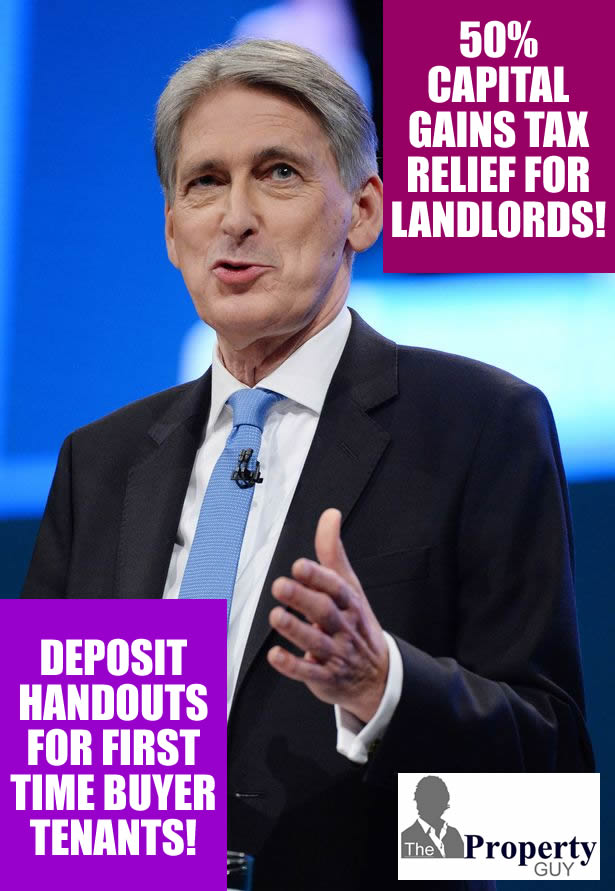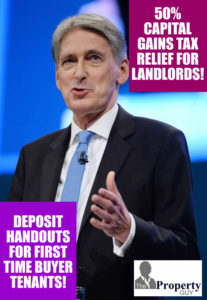One of the most frequently asked questions that I’m asked is,
“Should I evict my tenants before I try and sell my property”?
Many landlords believe they should evict their tenants before putting their investment property on the market, but I believe that it really depends on three factors:
- What are the tenants like?
- Will putting up the rent increase the selling price?
- Will the property appeal more to homebuyers or landlords?
1. What are the tenants like?
If your gut feeling is that the tenants are likely to put off prospective purchasers from buying, then I would consider evicting the tenants prior to marketing for sale.
2. Will putting up the rent increase the selling price?
If you’re going to sell your property tenanted, then before doing so, you may want to consider increasing the rent to the current market value. Many landlord buyers are driven by yield, so, increasing the rent prior to marketing will enable you to promote a better yield to your prospective buyers. You may even be able to achieve a higher selling price by increasing the rent.
For example:
Current Rent – £1000 pcm (per calendar month)
Current Sale Value – £200,000
Current Yield – 6%
As an example, if you increased the rent by £50 pcm and a prospective landlord buyer has a minimum yield expectation of 6%, they might be prepared to pay £10,00 more (£210,000) because the higher rent at £1050 pcm still delivers a 6% yield. This isn’t always the case because house prices are also dictated by supply and demand. If the identical property next door is for sale at £200,000, then you’re probably not going to achieve £210,000, irrespective of the increased rent that your achieving. It’s worth noting that raising the rent to increase the selling value doesn’t work so effectively with single AST sales, in comparison to commercial sales, blocks of flats, mixed-use assets and HMO’s (Homes of Multiple Occupancy).
If you do decide to increase the rent then you’ll need to serve your tenant with the appropriate notice. You’ll also need to review the terms of your AST to determine whether any conditions are attached to this process. If you’d like my opinion on your particular situation then feel free to get in touch with me. Click here to contact Gina
3. Will the property appeal more to homebuyers or landlords?
The current market conditions alone can dictate whether you’re more likely to get your best offer from a home buyer or another landlord. The various market cycles can have a bearing on this but the property type and/or it’s value is going to be the main factors. As mentioned earlier in point 2, many landlords are yield driven so larger family homes are going to be less attractive to them as an investment. Remember, a property is only worth what someone is prepared to pay, so, if your property appeals to both landlords and home buyers, you should obtain a valuation for both instances. Often these valuations will be the same, but not in all instances. For an accurate market appraisal assessment, you will need to engage with an expert in valuation methodology, which you’re unlikely to find in the average high street estate agency. If this is something that you’d like me to assess for you then please don’t hesitate to ask. Click here to contact Gina
Eviction process
Evicting a tenant successfully isn’t a straight forward process. A high percentage of landlords and letting agents fail to do this correctly, due to the numerous complexities involved. I’ve even known solicitors to get it wrong and it can be a very costly process indeed. Invalid notices can delay evictions by months at a time and paying court fees twice or more is an expensive affair. Some tenants stop paying the rent when they receive an eviction notice which can really start to rack up the costs. With all of this in mind, it’s really important to use the services on an evictions expert. You need it to work on the first attempt and the whole process to be dealt with as swiftly and as smoothly as possible. Please feel free to get in touch with me if you’d like to discuss this process further. Click here to contact Gina
Length of lease (leaseholds only)
If you’re selling a property which has fewer than 82 years remaining on the lease, then this is likely to restrict your prospective buyers. Additionally, once your lease falls below circa 75 years, the number of potential buyers will decrease further and the value will begin to fall quicker from this point compared to when the property had a new lease. The obvious answer is to extend a short lease prior to a sale, but many sellers don’t have the available funds to do this. The good news is that there’s a solution to this problem if handled correctly by the right combination of selling agent and solicitor. Although this strategy is not commonly known by estate agents, it’s possible to offer a short lease property to the whole market; at the price it would be if it already had an extended lease, without having to pay for it before the property is sold and completed. This is a lengthy topic which cannot be covered in this short article, however, please don’t hesitate to contact me for more assistance on this matter. Click here to contact Gina
Conclusion
Some landlords will only purchase investment properties with tenants in situ because they want to start receiving rent from day one. Others may insist on the property being vacant for numerous reasons. Some home buyers will be put off by tenants living at the property – often because they worry about how long it might take for the tenants to leave whilst they’re waiting to buy and move in themselves. Sometimes frustrated homebuyers will decide to buy a tenanted property with the intention of evicting them straight away so they can move in themselves soon after. What many homebuyers don’t realise is that they won’t be able to get a homebuyer’s mortgage on this basis. They would need to first get a buy-to-let mortgage and then switch it to a homebuyer’s mortgage before they can move in. The costs of setting up two mortgages and redeeming the first one early just to buy a family home is not financially advisable.
Whatever the situation, it’s very simple and can be very effective to market a property with tenants in situ “IF” you have the right estate agent handling the sale. The wrong agent can cause all sorts of problems, especially those that aren’t privy to tenancy law and the terms of your existing tenancy agreement. For example, tenants require at least 24 hours written notice before access can be granted. Additionally, depending on which stage the AST has reached, you may not be permitted to carry out viewings at all. Tenants are entitled to “peace and enjoyment of the property” as well as other benefits detailed within the clauses of your tenancy agreement. You must ensure that the selling agent you instruct is totally au fait with tenancy law, which is unlikely if they don’t do lettings and even if the firm itself has a lettings division, it doesn’t mean that the agent handling your sale won’t breach the terms of your tenancy agreement on your behalf and expose you to litigation.
I hope that you’ve found this article useful and if you do have any unanswered questions or you’re looking for a competent estate agent and property manager to assist you with anything contained within this article, then please don’t hesitate to contact me.
Gina-Jo Parry
Sales & Lettings Manager







